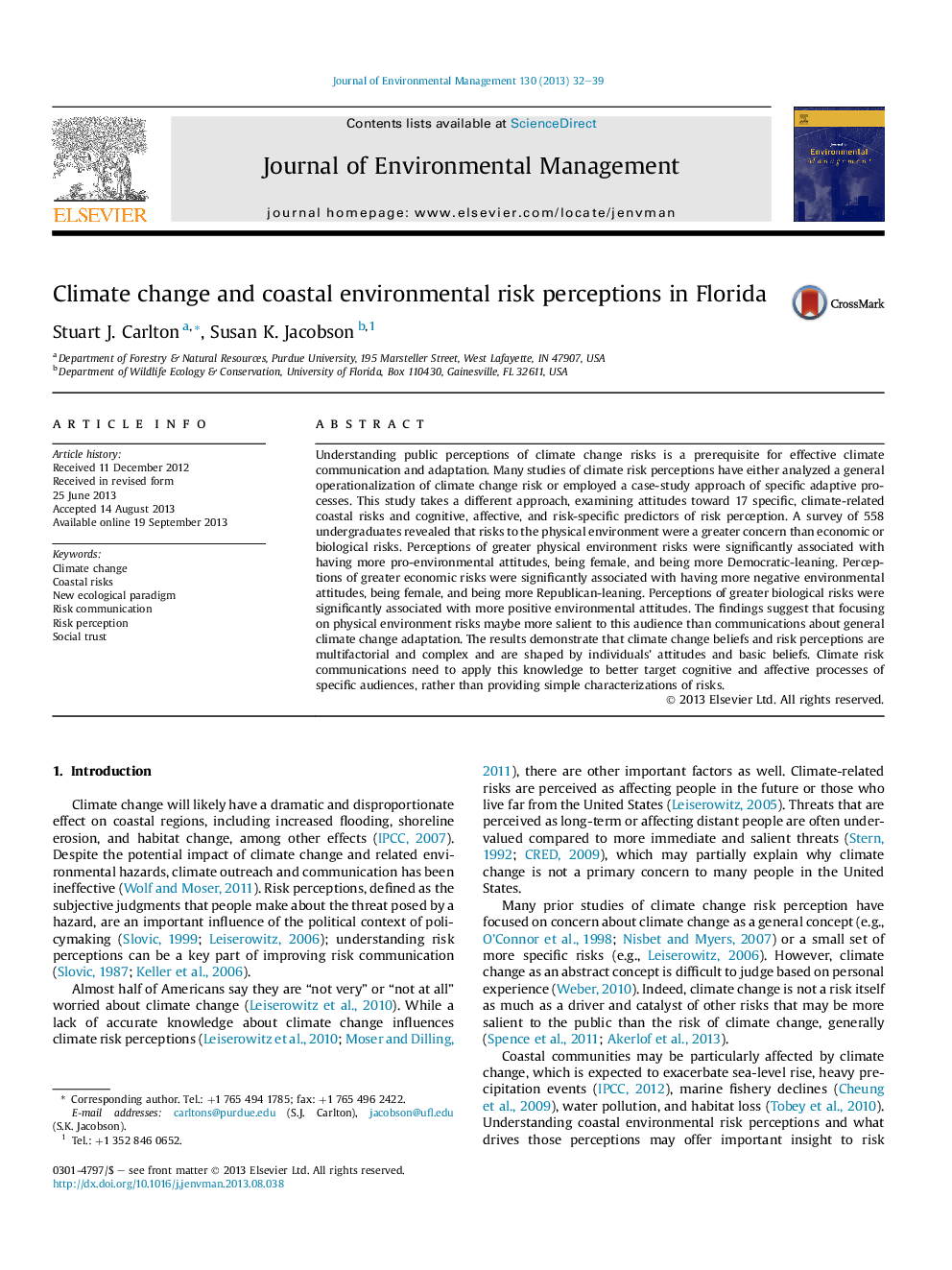| Article ID | Journal | Published Year | Pages | File Type |
|---|---|---|---|---|
| 1056068 | Journal of Environmental Management | 2013 | 8 Pages |
•We analyze climate-related, coastal environmental risk perceptions.•We examine the effects of cognitive and affective variables on risk perceptions.•Risk perceptions were affected by political identification and environmental attitudes.•Physical, biological, and economic risks were perceived differently.•Results suggest that focusing on specific risks may improve climate communication.
Understanding public perceptions of climate change risks is a prerequisite for effective climate communication and adaptation. Many studies of climate risk perceptions have either analyzed a general operationalization of climate change risk or employed a case-study approach of specific adaptive processes. This study takes a different approach, examining attitudes toward 17 specific, climate-related coastal risks and cognitive, affective, and risk-specific predictors of risk perception. A survey of 558 undergraduates revealed that risks to the physical environment were a greater concern than economic or biological risks. Perceptions of greater physical environment risks were significantly associated with having more pro-environmental attitudes, being female, and being more Democratic-leaning. Perceptions of greater economic risks were significantly associated with having more negative environmental attitudes, being female, and being more Republican-leaning. Perceptions of greater biological risks were significantly associated with more positive environmental attitudes. The findings suggest that focusing on physical environment risks maybe more salient to this audience than communications about general climate change adaptation. The results demonstrate that climate change beliefs and risk perceptions are multifactorial and complex and are shaped by individuals' attitudes and basic beliefs. Climate risk communications need to apply this knowledge to better target cognitive and affective processes of specific audiences, rather than providing simple characterizations of risks.
